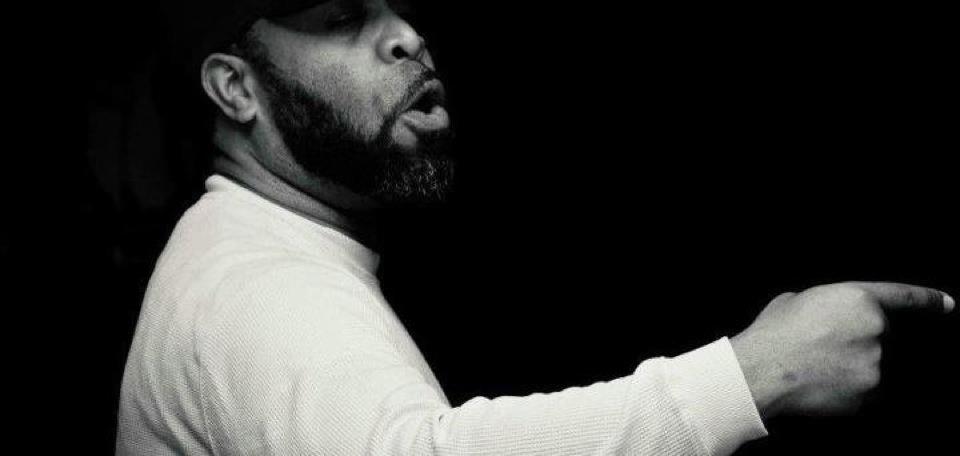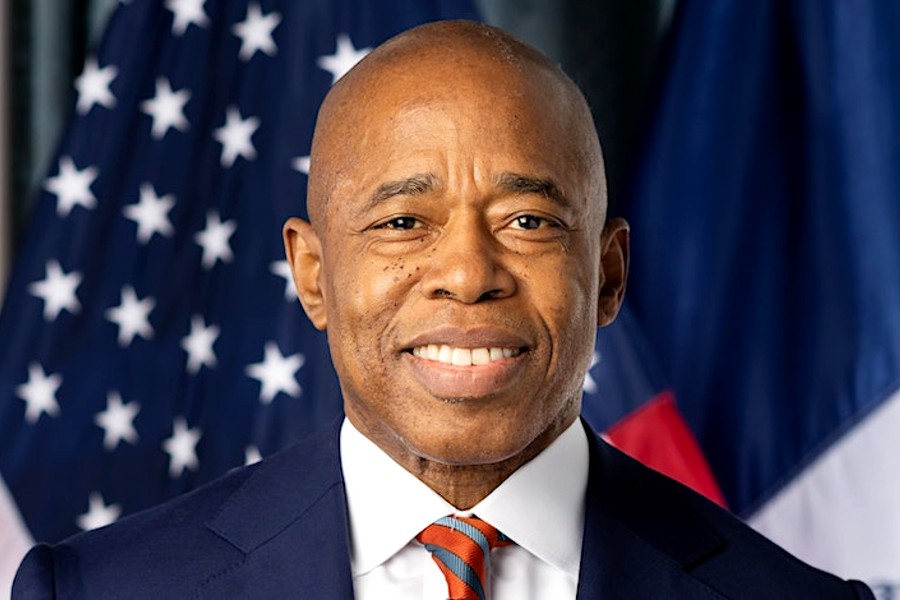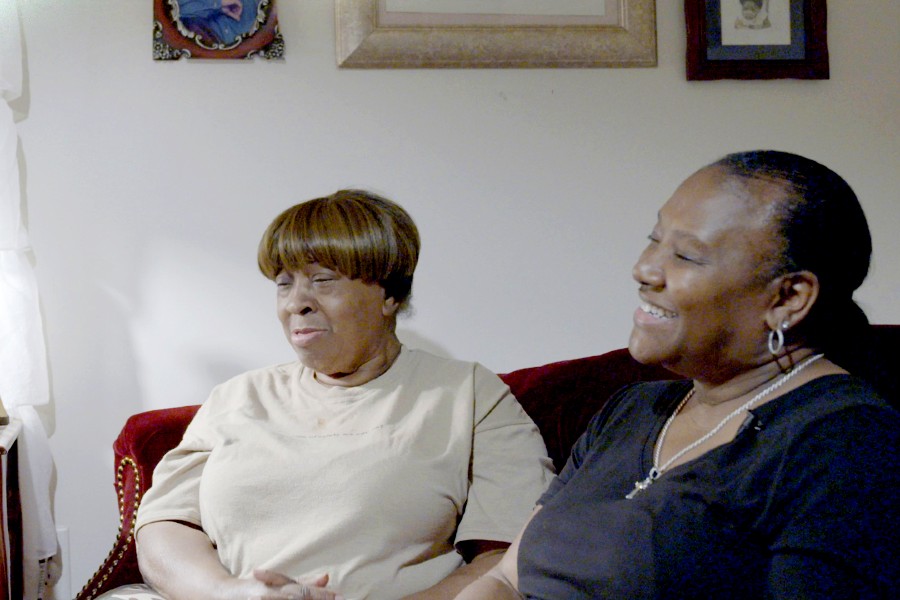 Lamar Hill began his first career on a central Harlem street corner, in the pre-MTV days of boomboxes and mix tapes.He and two pals, calling themselves Kool Moe Dee and Special K, recorded some of the earliest hip-hop records as the Treacherous Three. Wearing a T-shirt with an iron-on decal bearing his preferred name, L. A. Sunshine, he plugged his speakers into streetlight outlets to blast what was then a bold and unfamiliar new music, called rap.
Lamar Hill began his first career on a central Harlem street corner, in the pre-MTV days of boomboxes and mix tapes.He and two pals, calling themselves Kool Moe Dee and Special K, recorded some of the earliest hip-hop records as the Treacherous Three. Wearing a T-shirt with an iron-on decal bearing his preferred name, L. A. Sunshine, he plugged his speakers into streetlight outlets to blast what was then a bold and unfamiliar new music, called rap.
It was 1978. Mr. Hill was 15.
Sitting in his Bronx apartment, Mr. Hill, now 50, looked more like a youthful librarian than a rap pioneer as he talked about the Treacherous Three’s early days and the uneasy journey that followed. His voice somehow combined an entertainer’s enthusiasm with a survivor’s weariness.
“The neighborhood was proud to claim us as up-and-comers,” he remembered. “This powder keg known as hip-hop was bubbling and we thought we might be able to make some noise. Our turn was coming up.”
But Mr. Hill soon realized that the music business could be a tough place for a young man with trust issues, who was unprepared to deal with disloyal partners and predatory managers. It only intensified the depression that he had been battling since childhood.
“The industry,” he said, “put me in a real dark space that I couldn’t find myself out of. I had breakdowns.”
Mr. Hill’s 2011 autobiography, “L.A. Sunshine: A True Story, The Real Accounts,” begins with a deeply unsettling recollection of sexual abuse at the hands of a babysitter when he was 7 years old. His mentally unstable father was an inconsistent presence in his life; his mother, a nurse’s aide, worked long hours to provide for her four sons. Mr. Hill said he started taking care of himself at age 12.
“I was never a drug dealer, proud to say,” he said. “But I was a hustler. I’d shoot dice with the drug dealers and take their money.”
Shortly after he dropped out of ninth grade, radio stations began to play the Treacherous Three. The group released “New Rap Language” with Spoonie Gee and “Body Rock” and appeared in a 1984 film, “Beat Street.” But Mr. Hill saw little money. His first paycheck came in the form of cash, in a “greasy paper bag.”
Not that he was seeking the high life. “I’ve never so much as bought a chain, I don’t eat lobster, I don’t do Champagne,” he smiled. Aside from performing, Mr. Hill found the camaraderie and security he enjoyed on the tour buses to be the best part of the lifestyle.
But by age 20 his depression had been accompanied by suicide attempts and complicated by a cocaine addiction. The Treacherous Three dissolved in the mid-1980s and Mr. Hill found jobs to fuel his drug habit, living on and off the streets and sometimes sleeping in the stairwells of the Manhattanville Projects.
When Kool Moe Dee’s solo career took off he toured with him, performing on worldwide stages. But he spent most of the time in his hotel rooms getting high, he said.
“If there’s anything I regret, I’ve been to every major city at least five times and I have no idea what they look like,” he said.
Still, he found a second career in youth development. He returned to his Harlem neighborhood, organizing a basketball tournament and acting as an M.C. for the games, and worked as a recreation specialist for the city’s Parks and Recreation Department.
Over the next decade, Mr. Hill found part-time and seasonal work in after-school programs and as a teacher’s aide, at places like Harlem Children’s Zone/Promise Academy Charter School and Imagine Me Leadership Charter School in Brooklyn. Students called him Mr. L.A. or Coach L.A.
“The kids were my therapy but I didn’t realize it,” he said. He stopped using drugs, found different ways to navigate his depression and moved into his own apartment in the Bronx.
“It was the beginning of a turnaround,” he remembered thinking.
He was wrong. Past mistakes came back to haunt him. “I tried to dot the i’s and cross the t’s, which I am not the best with,” Mr. Hill admitted.
He owed approximately $35,000 for 20 years of unpaid child support for his oldest daughter, Ebony, now 31. Mr. Hill says he actually overpaid child support for his other daughter, Jamara, now 21. He was not married to either of the girls’ mothers.
And in 2011 the Unemployment Insurance Appeals Board filed suit against him for $18,000, citing payments they said he had received ineligibly. (Mr. Hill maintains that he had been transparent about his income history in his application.) He eventually pleaded guilty to a misdemeanor, but had already lost his job, and an eviction notice all but spelled the end of the line.
“I felt like someone pulled the stop out and all the water was running down the drain,” he said.
At a friend’s suggestion, he applied for a job at the Dunlevy Milbank Center in Harlem, an agency with the Children’s Aid Society, one of the seven organizations supported by The New York Times Neediest Cases Fund. Social workers there realized his desperate financial situation and helped him secure $2,125.25 from the fund for his back rent and three months’ utilities, food, transportation and clothing.
Now Mr. Hill regularly attends a back-to-work program and keeps busy with a variety of volunteer activities, hoping that one of them will lead to full-time work.
He still loves performing and occasionally appears with the Treacherous Three, but these days he craves 9-to-5 stability.
And for all his travails, he remains proud of his role in hip-hop history.
“Somebody has to be the roots of the tree,” he said. “Without the roots, that tree doesn’t stand.”
Related articles
- Would You Fire Your Employees for Doing The Harlem Shake? (themarlincompany.com)
- NYPD Search for missing 5-year-old East Harlem Girl (harlemworldmag.com)
- Harlem Born Rockwell’s ‘Saying Grace’ Sets Auction Records (video) (harlemworldmag.com)
- Magic Johnson Speaks on Continued AIDS Education at Apollo (harlemworldmag.com)
- Artist Nate Hill ‘Wears’ White Women As ‘Trophy Scarves’ (harlemworldmag.com)
- Greenest apartment building set for Harlem (harlemworldmag.com)
- Alicia Keys Brightens The ARIA Awards In Sydney (harlemworldmag.com)
- New York: Harlem (highlife.ba.com)
Become a Harlem Insider!
By submitting this form, you are consenting to receive marketing emails from: Harlem World Magazine, 2521 1/2 west 42nd street, Los Angeles, CA, 90008, https://www.harlemworldmagazine.com. You can revoke your consent to receive emails at any time by using the SafeUnsubscribe® link, found at the bottom of every email. Emails are serviced by Constant Contact


















